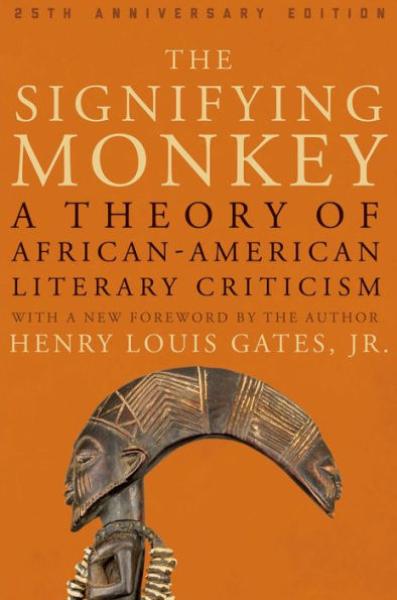Description
African-American vernacular traditions and black literature. It elaborates a new critical approach located within this tradition that allows the black voice to speak for itself.
Examining the ancient poetry and myths found in African, Latin American, and Caribbean culture, Gates uncovers a unique system for interpretation and a powerful vernacular tradition that black slaves brought with them to the New World. Exploring the process of signification in black American life
and literature by analyzing the transmission and revision of various signifying figures, Gates provides an extended analysis of what he calls the "Talking Book," a central trope in early slave narratives that virtually defines the tradition of black American letters. Gates uses this critical
framework to examine several major works of African-American literature--including Zora Neale Hurston's Their Eyes Were Watching God, Ralph Ellison's Invisible Man, and Ishmael Reed's Mumbo Jumbo--revealing how these works signify on the black tradition and on each other.
This superb 25th-Anniversary Edition features a new preface by Gates that reflects on the impact of the book and its relevance for today's society as well as a new afterword written by noted critic W. T. J. Mitchell.
"First issued as an Oxford University Press paperback, 1989"--Title page verso.
"Twenty-five years after its early exploration of the 'African-to-African/American' structure of textual meanings -- literary and oral -- Gates' seminal work re-emerges, revised and updated. Throughout that often turbulent quarter-century of African American intellectual discourse, some texts have
retained a steadfast relevance. The Signifying Monkey continues to 'signify.'"--Wole Soyinka
"The Signifying Monkey is a trailblazing act of the critical imagination; a bold and brilliant reshaping of the African American literary and cultural tradition that has redrawn the map of American studies. I turn to this book for its deft interpretations, its rare insights, and its defining wisdom
that defies the passage of time. Henry Louis Gates, Jr.'s most important work gives us a resonant framework of human values to guide our literary explorations and illuminate our cultural engagements."--Homi Bhabha, author of The Location of Culture
"Twenty-five years on from its first, explosive appearance, this wonderful book is still enlightening, stimulating, and enriching. It remains an indispensable point of orientation for the study of African American literature and the broader ecology of modern cultures that nurtured it."--Paul Gilroy,
author of The Black Atlantic
Praise for the previous edition
"Eclectic, exciting, convincing, provocative, challenging.... Gates gives black literature room to breathe, invents interpretive frameworks that enable us to experience black writing rather than label it in terms of theme or ideology. From this perspective his book is a generous, long-awaited
gift.... Like great novels that force us to view the world differently, Mr. Gates' compelling study suggests new ways of seeing."--John Wideman, The New York Times Book Review
"Brilliantly original. Besides the work of Houston Baker, I cannot think of a more exciting reassessment of black literature that has been published in many years. The Signifying Monkey has the feel of a seminal work, likely to reshape the course of black American literary criticism for years."--The
Washington Post Book World
"One of the most significant events in the development of Afro-American studies. Bold, ambitious, original.... An important contribution, not only to the study of Afro-American literature, but to the whole enterprise of 'literary theory' as it applies to any literature whatsoever. This is a
brilliant book, and it deserves to be read widely." --Critical Inquiry
"The singularity of this book and the pleasure it gives are due to the very fruitful conjunction it manages to achieve.... It is rarely the case that work on a marginalized corpus makes such a contribution simultaneously to linguistics, rhetoric, and literary theory."--Jacques Derrida
Product Details
- Oxford University Press, Brand
- Jul 23, 2014 Pub Date:
- 0195136470 ISBN-10:
- 9780195136470 ISBN-13:
- 352 Pages
- 9.2 in * 6 in * 1 in Dimensions:
- 1 lb Weight:




